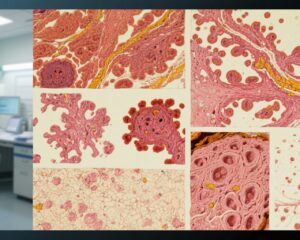Highlight
- Everolimus combined with carboplatin significantly improved progression-free survival (PFS) in patients with advanced triple-negative breast cancer (TNBC).
- The combination therapy showed manageable safety despite increased hematologic and nonhematologic toxicities compared to carboplatin alone.
- Overall survival (OS) benefit was observed but did not reach statistical significance.
- Exploratory biomarker analysis showed no clear correlation between PI3K-AKT-mTOR pathway mutations and treatment response.
Study Background and Disease Burden
Triple-negative breast cancer (TNBC) accounts for approximately 15-20% of all breast cancers and is characterized by the absence of estrogen receptor, progesterone receptor, and HER2 expression. This subtype often exhibits aggressive clinical behavior, limited treatment options, and a higher risk of early recurrence compared to other breast cancer subtypes. In the metastatic setting, TNBC patients who are ineligible for immunotherapy typically receive sequential cytotoxic chemotherapy agents and antibody-drug conjugates, where applicable. However, response rates to single-agent chemotherapies remain disappointingly low, underscoring a critical unmet need for more effective therapies that can improve survival outcomes while maintaining tolerability.
Everolimus, an oral mTOR inhibitor, has been explored in combination with carboplatin, a platinum-based chemotherapy, based on preclinical rationale that targeting the PI3K-AKT-mTOR pathway may overcome chemotherapy resistance and enhance cytotoxic efficacy. Early-phase clinical data suggested this combination could be safe and potentially effective, providing the impetus for the current randomized phase 2 study to rigorously evaluate efficacy and safety in advanced TNBC.
Study Design
This multicenter phase 2 randomized clinical trial enrolled 59 patients with metastatic triple-negative breast cancer across three sites between 2015 and 2022. Eligibility allowed up to three prior lines of systemic therapy. Patients were randomized in a 2:1 ratio to receive either carboplatin combined with everolimus or carboplatin alone. Stratification factors included estrogen receptor status and study site.
The dosing regimen consisted of carboplatin every 3 weeks with dosing calculated by the Calvert formula targeting an area under the curve (AUC) of 4 mg·min/mL. Everolimus was administered orally at 5 mg once daily. Treatment continued until disease progression, unacceptable toxicity, patient withdrawal, or death. Imaging assessments were conducted every 9 weeks.
The primary endpoint was progression-free survival (PFS). Secondary endpoints included overall survival (OS), overall response rates (ORR), clinical benefit rate (CBR), duration of response, and safety. Exploratory biomarker analyses focused on alterations in the PI3K-AKT-mTOR signaling pathway to investigate correlations with treatment response.
Key Findings
The study randomized 38 patients to the carboplatin plus everolimus arm and 21 to carboplatin alone. The median age was 62 years, with approximately two-thirds of patients having received at least one prior systemic therapy.
The combination therapy significantly prolonged median PFS compared with carboplatin monotherapy (4.7 months versus 4.2 months; hazard ratio [HR] 0.48, P = .036), representing a 52% reduction in the risk of progression or death. Sensitivity analyses supported the robustness of this finding.
Although the combination arm showed a median OS of 17.6 months compared with 14.6 months in the carboplatin group, this difference was not statistically significant. Objective response rates were higher with the combination (24% vs 10%), as was clinical benefit rate (63% vs 52%), though these differences did not reach statistical significance.
Remarkably, one patient treated with carboplatin and everolimus remained progression-free beyond four years, hinting at potential durable benefit in a subset of patients.
Exploratory biomarker analyses focusing on PI3K-AKT-mTOR pathway mutation status did not reveal a clear predictive impact on PFS, suggesting that molecular alterations in this pathway may not sufficiently stratify responders in this context.
Safety Profile
The safety analysis demonstrated higher incidences of hematologic toxicities in the combination arm, including thrombocytopenia (84% vs 33%), anemia (76% vs 43%), leukopenia (66% vs 38%), and neutropenia (63% vs 33%). While most cytopenias were mild or moderate (grade 1-2), grade 3 or higher events were more frequent with the addition of everolimus.
Nonhematologic adverse events were also observed more commonly with combination therapy, including nausea (61% vs 48%), fatigue (50% vs 38%), hyperglycemia (40% vs 29%), hypoalbuminemia (37% vs 19%), edema (37% vs 5%), and hypocalcemia (34% vs 5%).
Serious treatment-related adverse events occurred in 13% of patients in the combination arm compared to 10% in the carboplatin monotherapy arm. Treatment discontinuations due to toxicity were higher in the combination group (18% vs 5%). Importantly, two treatment-related deaths occurred among patients receiving the combination (one pneumonitis and one leukemia), whereas two deaths in the carboplatin-only group were not attributed to treatment.
Expert Commentary
This phase 2 study offers compelling preliminary evidence that targeting the mTOR pathway with everolimus in combination with carboplatin may enhance clinical outcomes in metastatic TNBC, a historically challenging and heterogeneous disease. The statistically significant improvement in PFS, accompanied by numerically higher OS and response rates, indicates potential additive or synergistic effects.
Nonetheless, the modest absolute benefit and increased toxicity highlight the need for careful patient selection and management. These findings underscore the importance of validating biomarkers that predict response to mTOR inhibition to optimize therapeutic benefit and minimize risks.
Given the small sample size and phase 2 design, these results are hypothesis-generating. Larger, adequately powered phase 3 trials are necessary to confirm clinical utility and establish this combination as a standard option. Integration of translational research to elucidate molecular mechanisms underlying response heterogeneity will be crucial.
Conclusion
The combination of everolimus with carboplatin demonstrates promising activity with a statistically significant improvement in progression-free survival in patients with advanced triple-negative breast cancer. Although safety concerns require vigilant monitoring, the manageable toxicity profile and potential for durable responses offer encouragement for further clinical development. Future studies should focus on validating predictive biomarkers and exploring combination regimens to enhance efficacy while minimizing adverse effects. This strategy holds promise to address the unmet need for more effective systemic therapies in metastatic TNBC.
References
Patel R, Fukui J, Klein P, Moshier E, Kocyigit H, Fiedler L, Bucwinska W, Xing XY, Shapiro C, Goel A, Fasano J, Shao T, Bhardwaj A, Kim E, Vaccaro R, Lee K, Wilck E, Tiersten A. Randomized phase II comparison of single-agent carboplatin versus combination of carboplatin and everolimus for advanced triple negative breast cancer. Breast Cancer Res Treat. 2025 Aug 16. doi: 10.1007/s10549-025-07802-7. Epub ahead of print. PMID: 40817986.



